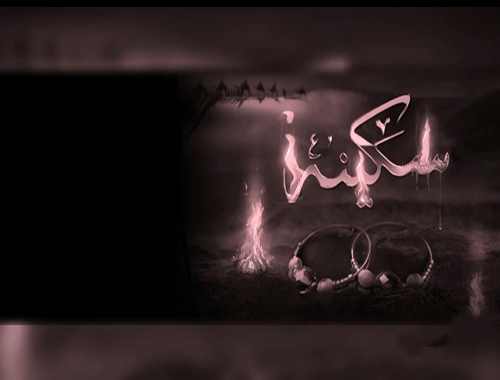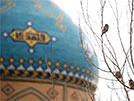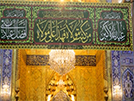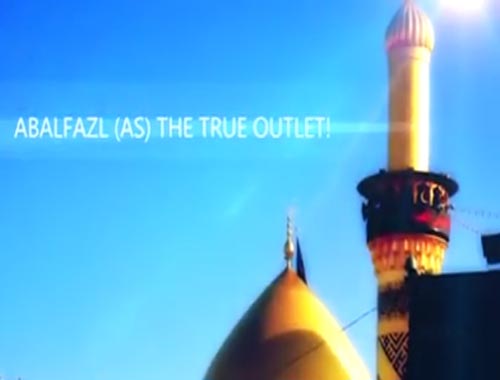Legal Justice
- Details
- Hits: 2061
Legal Justice
With that conception of divine cosmology which Islam has in regard to man, it is naturally necessary that among individuals there should exist a sort of unity, harmony and equality in the matter of basic legal rights. When it is not recognized that any particular position in society is reserved for any particular individual or group, none can claim that any high position or a superior job is his exclusive prerogative, nor can any one consider others to be destined to obey him and to do only menial work. Naturally for no particular group there exist any special rights or fixed privileges, nor for others lesser rights and privileges.
On the basis of this conception, justice does not mean the subjection and privation of the vast majority and the enjoyment of all the comforts of life by a particular class of individuals having the right of exploiting others for their own benefit. None has any special position and all are capable of developing their talents and showing their ability.
In this context justice means the provision of equal opportunities to all individuals to promote and show their talents, and to go forward up to the limit of their capacity.
Elimination of undue discrimination under Islamic conception
If we look at man from a purely material angle, it is quite likely that we should arrive at a conclusion untenable intellectually and ideologically. For example, if we consider man only as a living being having various faculties of growth and reproduction and having certain physiological and biological characteristics culminating in a developed nervous system and brain, we shall notice that there is a vast difference between various individuals from the point of view of their physical activity, colour of skin, power of muscles, shape of limbs, height, weight and the ability to do various physical jobs. If we define man as a tool‑making being, we shall find that all men are not alike in tool‑making ability and manual skills. Similarly if we judge man and his human value by his power of production, we shall see that in this respect also there is a vast difference between individual and individual. On this basis, it may look to be a part of human nature that there should be a difference in the position and the legal rights of different individuals. This kind of philosophy leads us to the ancient system of grouping and paints discrimination in natural and rational colours.
But according to the divine view of Islam, humanity of man neither lies in his veins, skin or bones nor in the growth of his muscles, his working power or his toolmaking. It lies in the fact that man is a self‑conscious being having independence of will and power of choice. On this basis all men are human beings possessing human values. Even from material point of view, what is important is that all men are made of clay, which is their common feature. Their nature is the same. According to this view the question of any human and natural discrimination does not arise.
Economic Justice
As we have already learnt, basically ownership is concentrated in Allah. All the natural resources which can be exploited by man are as a principle Allah's property. All men have been created by Him and they live on His gifts. According to this conception of cosmos, natural wealth is not the private property of anybody in society. No particular group or class can claim its ownership and deprive others of its use or to reduce them to the status of serfs. All natural resources belong to Allah. They are for the benefit of all. Justice means that, in the words of the Qur'an, `Wherever a man finds his means of living' or in the words of Imam Ali (P), `Whoever has a spark of life, he should have a right to acquire his sustenance'.
Social justice in financial matters means that all, yes all, should be able to get all the necessities of life.
Freedom of thinking and acquirement of knowledge
We know that man is a being ready for evolution and moving forward. Hence the social position of an individual in society is represented by the opportunity that opens for him the way to evolution and development, and even protects and guides him on this way, so that he may attain his natural and human rights.
For example, man has the power of thinking and choosing. Therefore a just society is that which provides him the opportunity of excercising his free will, gives him freedom of thought and does not impose on him the will and desire of any particular class. Suppression of the freedom of thought in any way hampers evolution and deprives man of his innate and God‑given right.
A just society gives man the right of making free and conscious choice. Man is not expected to make his choice with his eyes and ears closed nor under duress and pressure against the dictates of his conscience. The suppression of the right of choice is a deviation from the normal human course. It causes disequilibrium in society.
Anyhow, in regard to these questions it is a social necessity that guidance and constructive opportunities are provided to man to enable him to think rightly and make his choice rightly. But in providing this guidance there is a lurking danger which must carefully be avoided.
Guidance must be earnest and selfless. It should be provided for the service of man, to make his hidden capacities bloom, and not with a view to exploit him and mar his humanity.
Man has also the capability to learn and attain knowledge. Attainment of knowledge is his birth‑right. A just society is that which provides an opportunity to everyone to gain literacy, to make higher studies and to acquire proficiency in skills and arts.
Profit is the result of work and all‑round activity
It is the right of every individual to profit by the natural resources. But that is possible only as the result of his exerting himself and doing work. Therefore, it is necessary that an opportunity of working and making some sort of useful effort should be provided to every individual, and everyone should be guided and trained to make full use of his intellectual, mental and practical creativeness, so that he may be engaged in constructive activity and may profit by the natural gifts as the result of his own efforts.
Privation is the result of encroachment
It should not be forgotten that man is a social being, and an individual has to live with others in society. It is not the right of any one individual, but it is the right of all individuals that all possibilities of growth and development should be provided to them. Hence, the education of one must not be at the cost of keeping others uneducated, and the employment of some must not be at the cost of the unemployment of others. Similarly the enjoyment of the comforts of life by some should not be the cause of the privation of others.
It may be noted that according to the view held by Islam it is not because some individuals have secured their rights that others are deprived of theirs. It is, in fact, because of the transgression and excess of some individuals that others are deprived of their rights.
Imam Ali (P) has said:
"I have never seen any `hoarded money', without there being `neglected rights' besides it".
He has also said:
"No one remains hungry, except for the reason that some rich man has availed himself of too much".
There can be no privation if everybody is satisfied with what is his due.
Law of justice and a just mechanism to enforce it
Ina just society it ‑is necessary that there should exist laws to determine the rights of the individuals and there should be a machinery to enforce and defend these laws. But here again there is a possibility of a slip which should be avoided.
In this connection there arise some important questions:
What should be the nature of the laws and who should give them? What should be the aim of these laws and whose interests they should safeguard?
Evidently the laws should not overlook the principles we have mentioned earlier. They should serve the real interest of all individuals and should create a favourable atmosphere for the prosperity and the material and spiritual development of all. The laws should be in conformity with the innate human nature and should aim at moulding a balanced man. Islam presents such laws.
The next question is, which machinery should ensure the enforcement of these laws and should defend the rights of the people?
Scarcely there exists a society which does not talk of the rights and the law, and scarcely there is an executive machinery which does not regard itself as the protector of the rights and the interests of society. But the actual position is not so simple.
A thorough social analysis should be able to show whether those who are responsible for enforcing law, actually do so everywhere or they enforce their own desires, and instead of protecting the truth, safeguard their own interests.
Competence should be the criterion of securing social positions In the field of administration also, justice means that everything should be in its own place. As such, fitness and competence should be the only criterion of securing social positions.
Naturally competence is judged on the basis of the rules and the standards which every system lays down for itself.
We will later on discuss the Islamic standards in this respect. Anyhow, every type of self‑seeking, lust of power, defrauding and subjugation is contrary to the idea of social justice.
A just society also requires a conscientious, honest, unbiassed, far‑sighted and resolute judiciary, which may effectively protect the rights of people and prevent every kind of transgression and corruption.
Sense of responsibility
A sense of responsibility is one of the most important factors which guarantee the maintenance and enforcement of justice. For this purpose everybody should be aware of his rights and obligations, and watch that all do their duty. Constructive criticism and exhorting people to do good and restraining them from evil at every stage but within proper limits, are necessary for this purpose.
Islamic brotherhood
In Islamic society there exist a spiritual bond and a tie of mutual love and affection which unite all its members. Islam has laid great emphasis on Islamic brotherhood, which is one of the most important factors of the establishment and maintenance of its just social system. This spiritual infrastructure and sentimental bond of faith plays a basic role in safeguarding the rights of individuals and in taking care of their collective social interests.
Character building and fighting against corruption
Lastly the emphasis which Islam lays on character building continuous effort to eliminate spiritual vices and the promotion of moral qualities of individuals, is an important factor of the establishment and preservation of a just social system. As we have already seen, it is the corruption of those who run a system that causes tremendous damage to even those systems, which from the beginning are based on safeguarding the rights and interests of people. The original aims are often forgotten because of the selfishness, self-aggrandizement, mutual rivalry and lust of power of the pioneer groups. Even what was to be eliminated as the result of the previous efforts, reappears in a new form and seizes the existing situation. The prevention of such a damage is not possible without continuous self‑criticism, revival of faith and spiritual consciousness, character building and remoulding the individuals. In fact only pure, conscious and active people can bring a healthy system into existence and it is only they who can maintain it.











